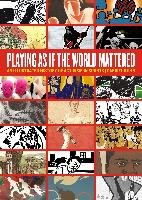The world of sports is often associated with commercialism, corruption, and reckless competition. Liberals have objected to sport being used for political propaganda, and leftists have decried its role in distracting the masses from the class struggle. Yet, since the beginning of organized sports, athletes, fans, and officials have tried to administer and play it in ways that strengthen, rather than hinder, progressive social change. From the workers' sports movement in the early twentieth century to the civil rights struggle transforming sports in the 1960s to the current global network of grassroots sports clubs, there has been a growing desire to include sports in the struggle for liberation and social justice. It is a struggle that has produced larger-than-life figures like Muhammad Ali and iconic images such as the Black Power salute by Tommie Smith and John Carlos at the 1968 Mexico Olympics. It is also a struggle that has seen sport fans in increasing number reclaiming the games they love from undemocratic associations, greedy owners, and corporate interests.
With the help of over a hundred full-color illustrations-from posters and leaflets to paintings and photographs-Playing as if the World Mattered makes this history tangible. Extensive lists of resources, including publications, films, and websites, will allow the reader to explore areas of interest further.
Being the first illustrated history of its kind, Playing as if the World Mattered introduces an understanding of sports beyond chauvinistic jingoism, corporate media chat rooms, and multi-billion-dollar business deals.

